NIL
If Nick Saban and Cody Campbell help control college sports’ future, how might it look?
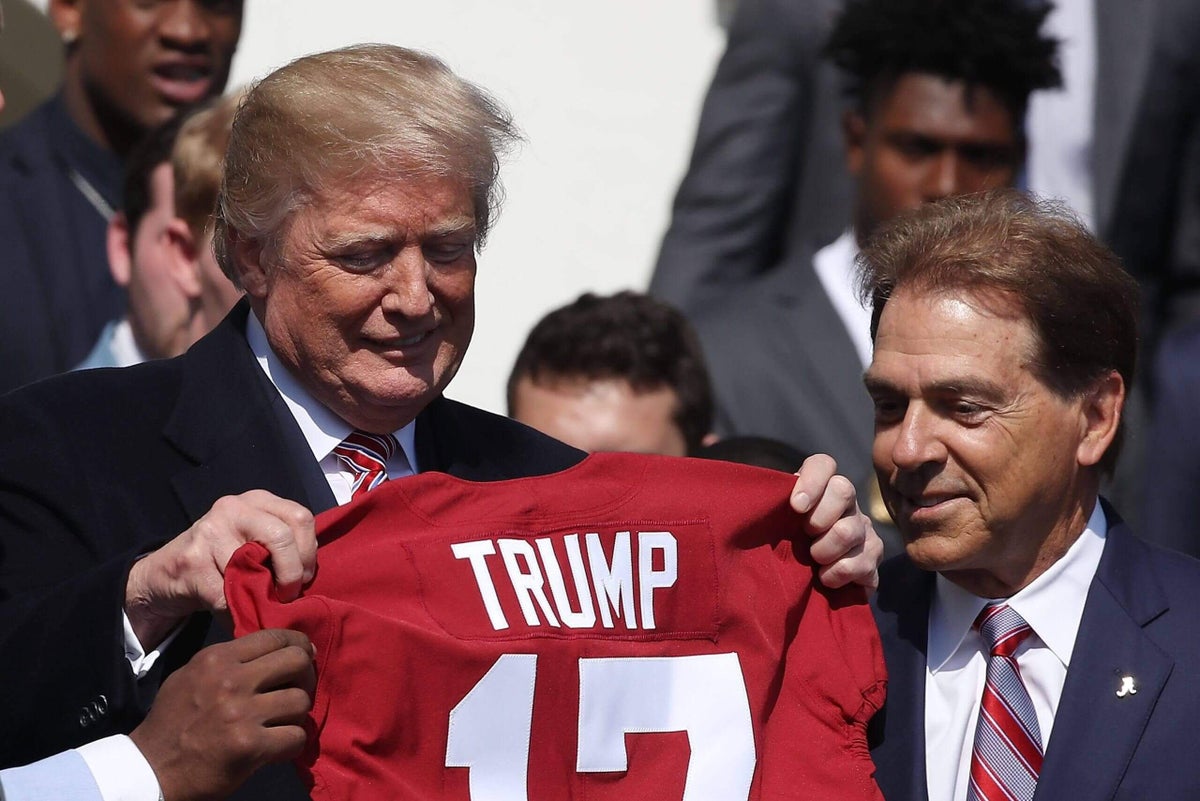
— By Chris Vannini, Sam Khan Jr. and Justin Williams
Can a presidential commission do anything substantial to change college sports?
The recent news that President Donald Trump may get involved in the prolonged effort to bring stability to college sports sparked plenty of debate on that question. But what could such a commission do, and what would the reported co-chairs, former Alabama coach Nick Saban and Texas Tech board chair and billionaire booster Cody Campbell, aim to accomplish?
Though we don’t yet know the scope of the commission or how deep it will dive into issues like name, image and likeness compensation or the transfer portal, Saban and Campbell’s past public statements provide some clues on what they might seek to address.
NIL
Saban has criticized the money flowing into the NIL market from deep-pocketed donors; Campbell is one of those donors, bankrolling Texas Tech’s recent success in player acquisition. Although NIL freedoms were designed to allow players to pursue marketing or endorsement deals, donors and their collectives quickly took to using them as a proxy for a pay-for-play system.
“To me, the biggest issue we have in college athletics is donor-induced name, image and likeness,” Saban said last fall at a panel in Dallas alongside NCAA president Charlie Baker. “Instead of doing what we’re doing now, we should be having revenue-sharing with the athletes so that their quality of life is better.”
Revenue sharing is indeed on the way, pending approval of the House v. NCAA settlement. But Saban and Campbell have expressed a desire for national NIL rules, rather than a collection of different state laws. The NCAA has long lobbied Congress for federal NIL legislation, to no avail. A bipartisan group of senators, led by Ted Cruz (R-Texas), continues to work on the issue, but nothing appears imminent.
Campbell, who has written several op-eds about college sports for The Federalist, advocated in April for an antitrust exemption that would allow a governing body to enact a single set of rules to supersede the “patchwork of 34 different state laws” that currently exist.
The House settlement, if it’s approved, will establish a revenue-sharing cap of at least $20 million that schools can distribute to athletes, and the Power 4 leaders are planning to create an enforcement organization for traditional NIL, but it’s not yet clear whether that will slow pay-for-play “NIL” as we know it today.

Texas Tech board chair and billionaire Cody Campbell has written several op-eds about college sports for The Federalist. (Mateo Rosiles/ Avalanche-Journal / USA TODAY NETWORK via Imagn Images)
Transfer portal
Campbell hasn’t written much about the portal, and Texas Tech has been an active user in recent years. Saban, however, has criticized the transfer rules for their effect on team chemistry and graduation rates.
“I’m all for the players, and I want the players to benefit, and I think we went far too long without the players being able to benefit,” Saban said last year. “But the system that we have right now makes it much more difficult for a coach to really create the culture on this team, because guys can leave whenever they want. So they don’t have to make the same kind of commitment that we all had to make, in terms of, how did you value your college experience?”
Restricting player movement hasn’t come up much in congressional hearings compared to the financial concerns, but the question of whether outgoing players should owe contract buyouts has gained steam as revenue sharing approaches. Arkansas’ NIL collective is currently looking to collect a buyout from quarterback Madden Iamaleava, who signed with Arkansas in December but has since transferred to UCLA.
Non-revenue sports
Despite their shared backgrounds in college football, Saban and Campbell have expressed concern over the impact on Olympic and non-revenue sports as more money shifts toward football and basketball.
“Of 134 FBS schools, 90 or more could lose funding for Olympic sports, women’s teams, and even football itself (not to mention the FCS and Division II),” Campbell wrote in March on The Federalist. “Local towns could crumble. Smaller colleges would fade. College sports would shrink from a national treasure to an elite clique, and countless dreams would be crushed.”
Saban cited Alabama’s softball team, one of the best in the country, as a winning program that doesn’t make money.
“What people don’t understand about college athletics, in my opinion, it’s not a business,” Saban said last September. “It’s revenue-producing. … Nobody takes a profit in college athletics. What do we do with the money? We reinvest it in the players and opportunities for non-revenue sports, so that they have an opportunity to graduate and compete.”
A large part of that cost also includes growing salaries for coaches, but Saban and Campbell both seem interested in finding ways for football — and, to a lesser extent, basketball — to continue funding non-revenue college sports under a reformed system.
Conference media rights/super leagues
Though Campbell called for antitrust protections, he doesn’t want to give those protections solely to the Power 4 leagues, even with his ties to Texas Tech and the Big 12, and said that any solutions must be “maximally inclusive” of the 130-plus Football Bowl Subdivision schools.
“Give the Autonomy Four (especially the Big 10 and SEC) a free antitrust hall pass, and they’ll build a super conference, a gilded monopoly that starves everyone else of the revenue needed to provide opportunity to more than 500,000 student athletes per year,” he wrote in March.
Saban, meanwhile, has said in the past that he’d like power conference schools to only schedule each other.
Campbell has written that the Sports Broadcasting Act of 1961 should be opened up to allow a broadcasting antitrust exemption for college sports as it does for pro sports, which could allow the entire FBS to pool and negotiate its broadcast rights collectively. Last week, Cruz remarked in a Senate committee hearing on streaming that the concept was something worth looking into, while also sharing concern about the NFL bumping up against protected late-season college football windows.
The SBA is one of the first major hurdles faced by recent Super League proposals from private equity groups that would include all of FBS or only the Power 4. The Big Ten and SEC have shown no interest in concepts that would lessen their financial advantage, but Campbell shares similar views with those promoting the Super League ideas: An antitrust exemption would lead to more money for everyone.
“The big and storied programs will continue to retain an advantage because of their massive ticket sales, donor support, and ability to monetize licensing and merchandise,” Campbell wrote, “but the smaller schools will at least be able to maintain solvent athletic departments and support non-revenue sports.”
Campbell has also advocated for “geographic sense” for conference alignment, expressing concern about travel time and the loss of rivalries. Finding a way to unwind conference realignment seems difficult, but it’s a topic any casual fan of college sports, including members of Congress, would understand.
Student-athlete employment status
The issue of employee or collective bargaining status for college athletes is not directly addressed in the House settlement, but it is expected to be one of the next high-profile legal battles in the industry.
Saban and Campbell have expressed desires for college athletes to remain students and for college sports to maintain some semblance of an academic model.
“Establishing this non-employee status will help to limit the cost burden of sponsoring an intercollegiate sport, and ensure that benefits like a scholarship are not taxable as income,” Campbell wrote in April.
Campbell also noted the Title IX implications of this debate: “(T)he proper application of Title IX with respect to the payment of student athletes must be made clear in order to prevent another wave of disruptive litigation.”
It’s yet to be seen who else will be on this presidential commission, what it will focus on and whether it will actually influence anything. But its existence would put more focus on doing something.
“My only hope is that leadership can emerge and consensus can be found in Washington before it’s too late,” Campbell wrote in April. “There are solutions, and the problems can be solved in a bipartisan manner. It is only a matter of will, engagement, and attention from well-intentioned individuals who wish to perpetuate the legacy and impact of the great American institution of Intercollegiate Athletics for all of its participants — not just for a privileged few.”
Saban for years has worked as a de facto voice of the sport, especially in his role at ESPN, and Campbell laid the political groundwork with his writing. The pair may soon have the ability to drive even more of the conversation for actual change.
“If we can just get it together and put it together, we’d have a great system,” Saban said. “I think the future of college football is great. I really do. I’m not down on the game. I’m just down on the system of how we get money to players. That’s got to be fixed.”
(Top photo of Nick Saban and Donald Trump: Mark Wilson/Getty Images)
NIL
Elon Announces 2026 Football Schedule
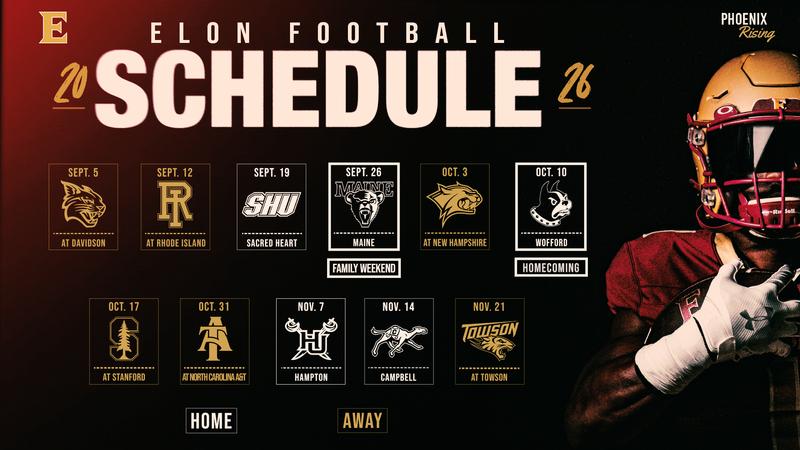

Football
Elon Athletics
Five-Game Home Slate, Road Trip To Stanford Highlight Schedule
ELON – Elon football head coach Tony Trisciani and the Phoenix released their 2026 football schedule Tuesday afternoon in conjunction with an announcement from the Coastal Athletic Association. The 11-game schedule is highlighted by a mid-October trip to Stanford and an eight-game CAA slate that gets started in week two.
The Phoenix will play five home games at Rhodes Stadium, including Sept. 26 for Family Weekend against Maine and Oct. 10 for Homecoming against Wofford.
Elon opens the season with two straight road games at Davidson (Sept. 5) and CAA foe Rhode Island (Sept. 12). The Phoenix defeated the Wildcats 55-7 in its 2025 home opener. The trip to Rhode Island will be Elon’s first since 2022.
Elon plays its home opener on Sept. 19 against CAA newcomer Sacred Heart and then closes out the month of September by hosting Maine on Sept. 26 for Family Weekend.
After completing the first half of its CAA schedule by returning to the northeast to face New Hampshire on Oct. 3, the Phoenix welcomes former Southern Conference rival Wofford to Rhodes Stadium for Homecoming on Oct. 10. It’ll serve as Elon’s only home game in October.
Elon will make its first-ever West Coast trip to face Stanford on Oct. 17, marking the fourth straight season it has clashed with an ACC opponent. A bye week will then lead to another October road game at North Carolina A&T on Halloween (Oct. 31).
The Phoenix closes its home schedule against Hampton (Nov. 7) and Campbell (Nov. 14) before playing its regular-season finale at Towson (Nov. 21), a squad it defeated 17-3 on the road in 2025.
2026 ELON FOOTBALL SCHEDULE
Aug. 29 – Bye
Sept. 5 – at Davidson
Sept. 12 – at Rhode Island
Sept. 19 – vs. Sacred Heart
Sept. 26 – vs. Maine (Family Weekend)
Oct. 3 – at New Hampshire
Oct. 10 – vs. Wofford (Homecoming)
Oct. 17 – at Stanford
Oct. 24 – Bye
Oct. 31 – at North Carolina A&T
Nov. 7 – vs. Hampton
Nov. 14 – vs. Campbell
Nov. 21 – at Towson
* Game times will be announced at a later date
SUPPORT THE PHOENIX
2026 Elon Football Season tickets are available now at ElonTickets.com. Fans can support Elon Athletics through the Phoenix Club.
STAY POSTED
For further coverage of Elon Football, follow the Phoenix on X (@ElonFootball) and Instagram (@ElonFB).
NIL
Patriots Lessons, NIL Chaos & His Post-NFL Career

In Season 2, Episode 10 of Portfolio Players presented by E*TRADE from Morgan Stanley, Brian Hoyer offers an inside look at how NIL (name, image, and likeness) collectives, and program infrastructure are transforming college football. As a longtime NFL quarterback and current partner at Legacy25, Hoyer brings a rare combination of on-field experience and operational insight into how the athlete pipeline is shifting.
He details why today’s college landscape mirrors professional sports, how donor fatigue and escalating expectations impact programs, and why collectives must prioritize financial education and long-term planning. Hoyer also explains the role of Legacy25 in supporting athletes across multiple sports and why non-revenue programs are increasingly turning to NIL as a competitive advantage.
Drawing from his years with the Patriots, Hoyer reflects on the leadership lessons, discipline, and organizational standards that now inform his post-football career. With thoughtful commentary on NIL, athlete development, and long-term sustainability, Hoyer paints a clear picture of where college athletics is heading and what it will take to succeed.
NIL
Eli Drinkwitz details conversations with other coaches about challenges facing college football
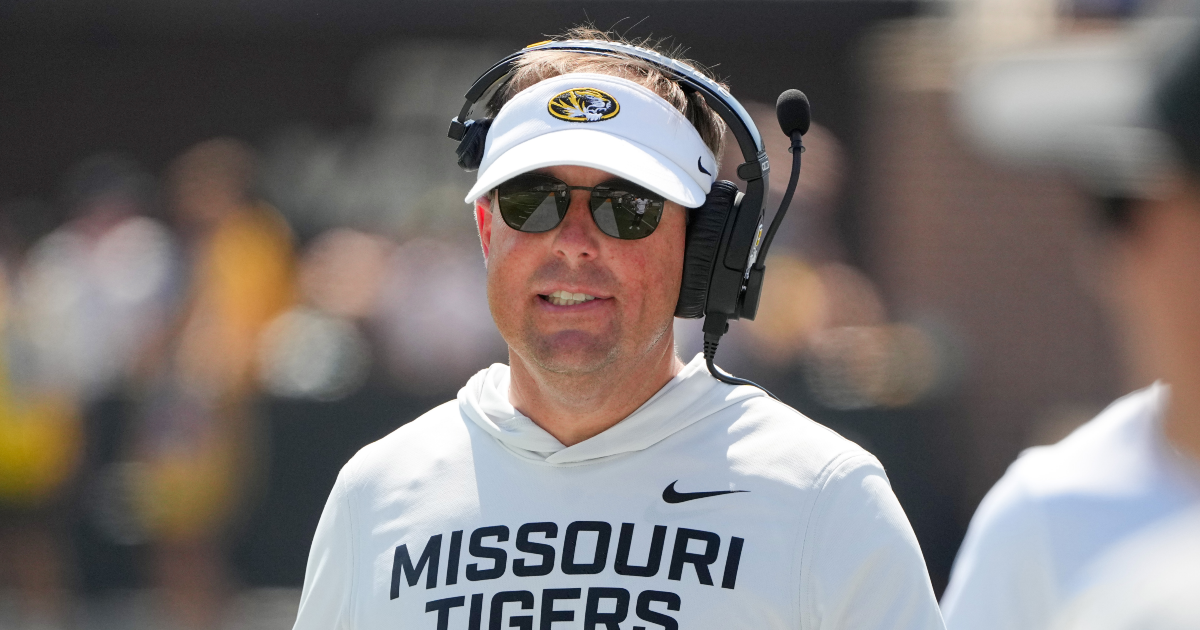
Eli Drinkwitz is frustrated with a lot of aspects of the current world of college football, and he believes other coaches share that sentiment. The Missouri head man opened up about his gripes in a recent press conference, prompted by a question about the recent College Sports Commission finalizing a participation agreement with the power conferences.
The agreement ushered in the era of revenue sharing in college sports and put NIL guidelines on schools. But Drinkwitz believes there’s still more that needs to be done to come up with a system of rules that everyone can be happy with.
SUBSCRIBE to the On3 NIL and Sports Business Newsletter
“There’s a lot of coaches discussing it and frustrated, in my opinion,” he said. “I understand the national sentiment because of the salary ranges of head coaches, it feels like we’re complaining. But we’re really not. We’re trying to sound some warning bells. …The system that we’re in is really sick right now. College football is sick and showing signs of this thing really cracking moving forward, and we need to get something under control.”
Per the agreement, a copy of which was obtained by On3’s Pete Nakos, schools are required to waive their right to sue the CSC. Additionally, schools are to agree to the rules in place following House settlement approval, including roster limits and other NIL compliance rules.
If a school violates any of the rules in place by the participation agreement, they “shall be subject to fines, penalties or other sanctions for these matters,” the 11-page document reads. While punishments are not yet finalized, schools could lose out on conference revenue or receive a limited postseason ban if they – or other associated entities – file suit against the CSC.
But that’s not the only issue Eli Drinkwitz and other coaches are watching. The Mizzou coach also pointed to an ongoing lawsuit that could potentially grant a fifth-year of eligibility to numerous players, as well as the topic of tampering, which he claimed is not punished at all.
“I think we’re all waiting with baited breath trying to wait on what’s going to happen with this fifth-year lawsuit in Nashville, where you could have a flurry of fifth-year guys now being eligibile,” Drinkwitz said. “That would just throw a completely new wrinkle in the system. Tampering is at the highest level. There is no such thing as tampering because there’s nobody that’s been punished for tampering. Everybody on my roster is being called. I had a dad call me and say — and I called the head coaches at their schools — that, ‘This school and this school and this school called offering this much money.’ You’re putting a lot of pressure on young men.
“We’re paying them, as 1099 employees, a lot of money. We’re not offering any type of retirement. We’re not offering any type of health benefits. We’ve worked around the system and then tried to create that as the system instead of creating a functioning way moving forward and making sure that it works for everybody. Whether that’s collective bargaining, whether that’s making them employees, whether that’s antitrust legislation that protects the commissioner of the SEC or the NCAA from lawsuit, something needs to be done.”
Finally, Eli Drinkwitz invoked Nick Saban with his final point. He mentioned how, during meetings, Saban would always talk about making sure that his players were prepared for life after football, especially for those that didn’t end up playing in the NFL.
Drinkwitz believes that might be getting lost a bit with the worry about revenue and all the changes being made to increase it. But he stated that he got into coaching for different reasons, and knows many other who still feel the same way.
“A lot of us got into college athletics because we wanted to help these young men grow and develop, and I think we’re still doing that mission,” he said. “But it’s getting really hard because coach (Nick) Saban used to talk about all the time, creating value for yourself. When he talked about it, he wasn’t just talking about value for the NFL. He was talking about creating value for yourself with a college degree. You’ve lost that aspect of it.
“These guys are going to create tremendous value for themselves playing the game of football, and that’s awesome. We love that these guys are getting paid. I love that last week, these guys went out with their own money and bought gifts for Coyote Hill. But also, my job is to look at them three or four years down the road. How many of them are in a better position because they played football because they transferred four times? That’s just the system that we’ve created. Not all freedom is good freedom.”
NIL
Downtown Athletic Club of Hawai‘i Gives $300,000 to Boost the ’Bows NIL fund
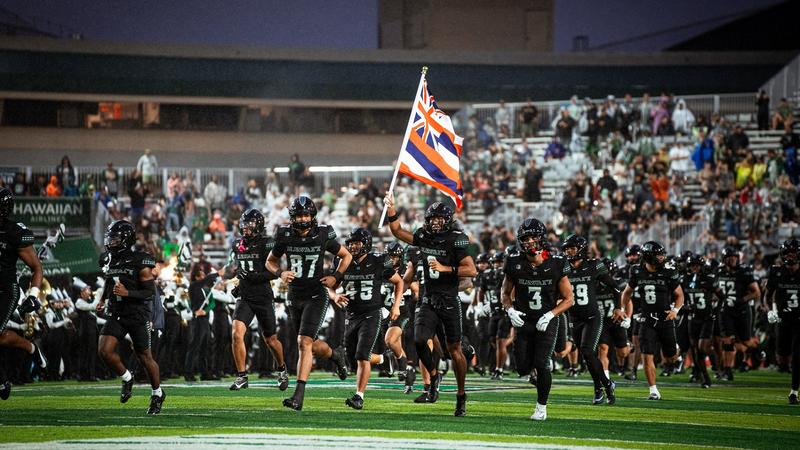
The University of Hawai’i Athletics Department has received a $300,000 gift from the Downtown Athletic Club of Hawai’i (DACH) to support the Rainbow Warrior football program through the team’s Boost the ‘Bows Fund, which is set up to support UH Athletics’ ability to recruit and retain elite student-athletes.
The contribution is a major philanthropic commitment to the Football NIL fund and marks a significant milestone for UH Athletics as it adapts to the rapidly changing landscape of college sports.
College athletics has undergone a significant transformation in recent years with the emergence of Name, Image, and Likeness (NIL) programs, which allow student-athletes to receive compensation for endorsements, appearances, and other partnerships.
“University of Hawaiʻi NIL support is essential to retaining and recruiting top student-athletes who choose to represent the State of Hawaiʻi,” said UH head coach Timmy Chang. “In today’s collegiate landscape, NIL opportunities directly impact the current and future success of our programs.
“Donations from partners like DACH play a vital role in providing our student-athletes with the resources they need to compete at the highest level. With continued support from the community and donors, University of Hawaiʻi NIL can reach its full potential. Please support the University of Hawaiʻi NIL as we continue to build excellence and proudly represent the Pacific as the region’s No. 1 university.”
Over the past few years, DACH has been involved in supporting UH student-athletes with various NIL opportunities. As the landscape has continued to evolve, and with new guidelines now allowing the University to directly manage institutional NIL agreements with student-athletes, DACH has chosen to contribute the remaining funds directly to the Boost the ‘Bows Fund. This approach allows UH Athletics to administer NIL support in a centralized and coordinated way.
“This was a collaborative effort from several leading Hawai’i organizations, including aio, American Savings Bank, Central Pacific Bank, First Hawaiian Bank, Queen’s Health Systems, Hawai’i Pacific Health, HMSA, Island Insurance, and the Waterhouse Foundation, all of whom share a commitment to strengthening the future of UH Athletics.” said Brandon Kurisu, Vice President for DACH, which was formed in 2012 by the owners and top executives of trusted downtown Hawai’i businesses. “Boost the ‘Bows is a vital tool for building a strong, competitive program, and we’re proud to support the student-athletes who inspire our community.”
The framework for college athletics recently changed once again following the House v. NCAA settlement, which allows universities, for the first time, to enter into direct, institutional NIL agreements with student-athletes across all sports. This change gives athletics departments a crucial new tool to remain competitive in recruiting and retaining top talent, especially for programs like UH football that rely on homegrown athletes and statewide support.
“The Downtown Athletic Club’s gift is an investment in the future of our football program,” said UH Athletics Director Matt Elliott. “It helps us remain competitive and is the first of what we hope will be many commitments in this new era of NIL. A big mahalo to DACH for their generosity and commitment and support of our program.”
Businesses, organizations, and individuals interested in supporting UH student-athletes can learn more about the Boost the ‘Bows Fund and how they can get involved by visiting Support Our Team, Hawai’i’s Team.
NIL
Downtown Athletic Club of Hawaiʻi gives $300K to Boost the ’Bows NIL fund


The University of Hawaiʻi at Mānoa Athletics Department has received a $300,000 gift from the Downtown Athletic Club of Hawaiʻi (DACH) to support the Rainbow Warrior football program through the team’s Boost the ’Bows Fund, which is set up to support UH Mānoa Athletics’ ability to recruit and retain elite student-athletes.
The contribution is a major philanthropic commitment to the football NIL (Name, Image, and Likeness) fund and marks a significant milestone for UH Mānoa Athletics as it adapts to the rapidly changing landscape of college sports.

College athletics has undergone a significant transformation in recent years with the emergence of NIL programs, which allow student-athletes to receive compensation for endorsements, appearances and other partnerships.
“University of Hawaiʻi NIL support is essential to retaining and recruiting top student-athletes who choose to represent the State of Hawaiʻi,” said UH head coach Timmy Chang. “In today’s collegiate landscape, NIL opportunities directly impact the current and future success of our programs.
“Donations from partners like DACH play a vital role in providing our student-athletes with the resources they need to compete at the highest level,” Chang added. “With continued support from the community and donors, University of Hawaiʻi NIL can reach its full potential. Please support the University of Hawaiʻi NIL as we continue to build excellence and proudly represent the Pacific as the region’s No. 1 university.”
Over the past few years, DACH has been involved in supporting UH student-athletes with various NIL opportunities. As the landscape has continued to evolve, and with new guidelines now allowing the university to directly manage institutional NIL agreements with student-athletes, DACH has chosen to contribute the remaining funds directly to the Boost the ’Bows Fund. This approach allows UH Mānoa Athletics to administer NIL support in a centralized and coordinated way.
“This was a collaborative effort from several leading Hawaiʻi organizations, including aio, American Savings Bank, Central Pacific Bank, First Hawaiian Bank, Queen’s Health Systems, Hawaiʻi Pacific Health, HMSA, Island Insurance, and the Waterhouse Foundation, all of whom share a commitment to strengthening the future of UH Athletics,” said Brandon Kurisu, vice president for DACH, which was formed in 2012 by the owners and top executives of trusted downtown Hawaiʻi businesses. “Boost the ’Bows is a vital tool for building a strong, competitive program, and we’re proud to support the student-athletes who inspire our community.”
The framework for college athletics recently changed once again following the House v. NCAA settlement, which allows universities, for the first time, to enter into direct, institutional NIL agreements with student-athletes across all sports. This change gives athletics departments a crucial new tool to remain competitive in recruiting and retaining top talent, especially for programs like UH football that rely on homegrown athletes and statewide support.
“The Downtown Athletic Club’s gift is an investment in the future of our football program,” said UH Mānoa Athletics Director Matt Elliott. “It helps us remain competitive and is the first of what we hope will be many commitments in this new era of NIL. A big mahalo to DACH for their generosity and support of our program.”
Businesses, organizations and individuals interested in supporting UH student-athletes can learn more about the Boost the ’Bows Fund and how they can get involved by visiting Support Our Team — Hawaiʻi’s Team.
NIL
New college football program emerges as landing spot for Dylan Raiola
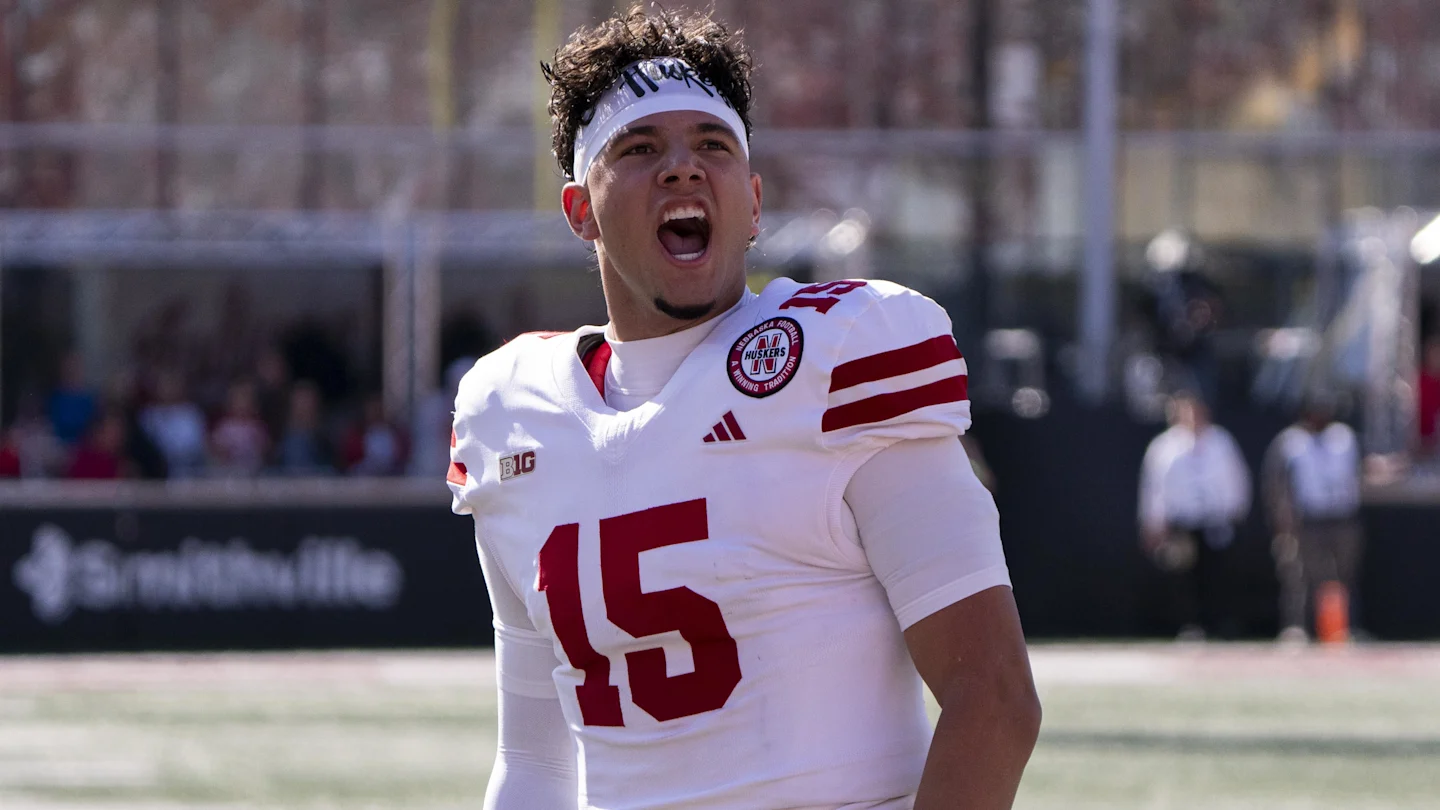
The arms race to sign Dylan Raiola is on, as the former Nebraska quarterback is reportedly poised to enter the college football transfer portal for the 2026 season.
A former five-star prospect, Raiola is expected to be one of the most prominent names in this year’s portal cycle, and one college football program is already interested.
Who is interested in Dylan Raiola?
Dylan Raiola has received interest from ACC hopeful Louisville, which has been in communication with the quarterback’s representatives, according to On3 Sports.
Other schools are believed to be in the mix for Raiola, but the Cardinals are actively scouting a potential replacement for Miller Moss as his college football career is coming to its conclusion after this season.
DJ Lagway, the former Florida starting quarterback who is also set to transfer in this cycle, was named a candidate for Louisville to sign in the same reporting.
A known QB developer
Louisville head coach Jeff Brohm is considered one of the best quarterback coaches in the country, helping groom Tyler Shough into a draft selection, and Moss is coming off a 2,500-plus yard campaign in 2025.
And the Cardinals were said to be in the mix for Cam Ward two offseasons ago before he ultimately landed at Miami.
The program is willing to spend money at the position, handing over more than $1.5 million this season to Moss, who transferred from USC to Louisville.
What Raiola has done on the field
Raiola was in the midst of an improved second outing with Nebraska under the direction of offensive coordinator Dana Holgorsen before a broken fibula limited him to just nine starts this season.
In those games, Raiola surpassed 2,000 yards passing with 18 touchdowns and 6 interceptions, and his completion mark improved from 67.1 percent as a freshman to a better 72.4 percent rate in his second year with the Cornhuskers.
How the college football transfer portal works
The NCAA Transfer Portal is a private database that includes the names of student-athletes in every sport at the Division I, II, and III levels. The full list of names is not available to the public.
A player can enter their name into the transfer portal through their school’s compliance office.
Once a player gives written notification of their intent to transfer, the office puts the player’s name into the database, and they officially become a transfer.
The compliance office has 48 hours to comply with the player’s request and NCAA rules forbid anyone from refusing that request.
The database includes the player’s name, contact information, info on whether the player was on scholarship, and if he is a graduate student.
Once a player’s name appears in the transfer portal database, other schools are free to contact the player, who can change his mind at any point in the process and withdraw from the transfer portal.
Notably, once a player enters the portal, his school no longer has to honor the athletic scholarship it gave him.
And if that player decides to leave the portal and return to his original school, the school doesn’t have to give him another scholarship.
More college football from SI: Top 25 Rankings | Schedule | Teams
Follow College Football HQ: Bookmark | Rankings | Picks
-

 Motorsports3 weeks ago
Motorsports3 weeks agoRedemption Means First Pro Stock World Championship for Dallas Glenn
-

 Motorsports3 weeks ago
Motorsports3 weeks agoJo Shimoda Undergoes Back Surgery
-

 NIL2 weeks ago
NIL2 weeks agoBowl Projections: ESPN predicts 12-team College Football Playoff bracket, full bowl slate after Week 14
-

 Motorsports6 days ago
Motorsports6 days agoSoundGear Named Entitlement Sponsor of Spears CARS Tour Southwest Opener
-

 Rec Sports3 weeks ago
Rec Sports3 weeks agoHow this startup (and a KC sports icon) turned young players into card-carrying legends overnight
-

 Rec Sports2 weeks ago
Rec Sports2 weeks agoRobert “Bobby” Lewis Hardin, 56
-
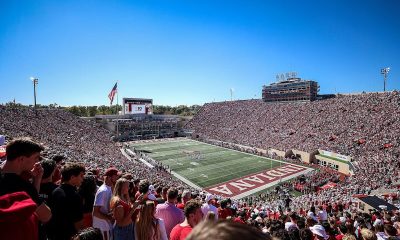
 NIL3 weeks ago
NIL3 weeks agoIndiana’s rapid ascent and its impact across college football
-

 Motorsports3 weeks ago
Motorsports3 weeks agoPohlman admits ‘there might be some spats’ as he pushes to get Kyle Busch winning again
-
Sports2 weeks ago
Wisconsin volleyball sweeps Minnesota with ease in ranked rivalry win
-

 Motorsports3 weeks ago
Motorsports3 weeks agoWhat stands behind Ford’s commitment to becoming ‘the Porsche of off-road racing’





























